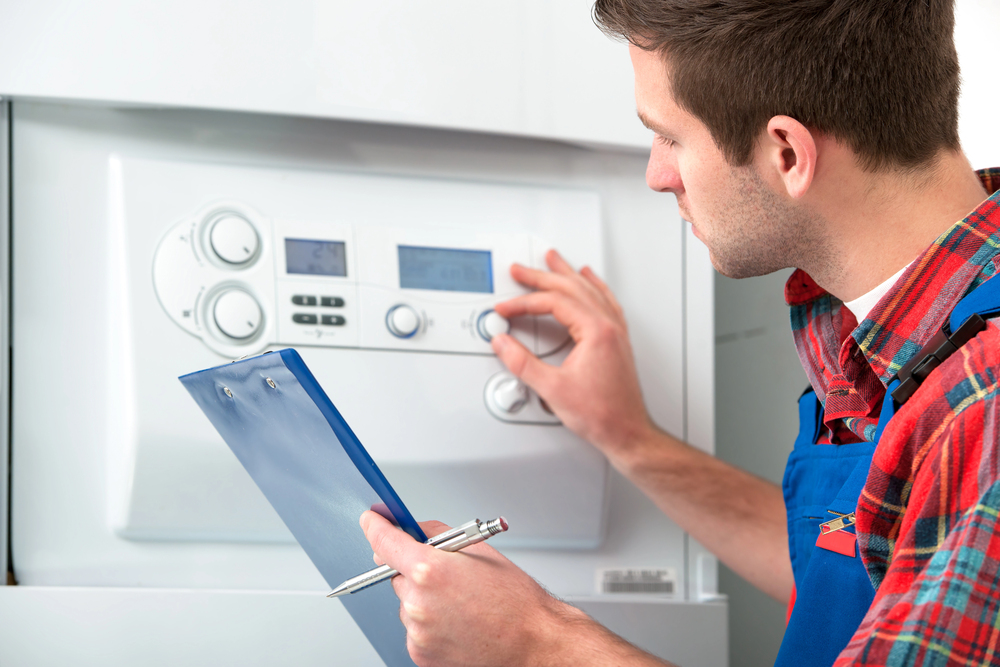Is Boiler Breakdown & Home Emergency Insurance Worth Buying?

What are the benefits of boiler insurance?
Thousands of holiday homes across the UK will soon be turning on their heating for the first time in months. Inevitably, some boilers will not fire up or breakdown due to the greater strain put on the system during the winter.
A boiler is probably the last appliance you want to breakdown, particularly during winter as it usually means that guests have no access to hot water or heat. If holiday let landlords don’t act fast to resolve the issue, it usually results in complaints and a possible request for compensation.
Also, most holiday cottage insurance policies have winter heating warranties, such as the temperature must be maintained to a specified minimum temperature during the winter. Should your heating breakdown and you can’t maintain the required temperature, you are likely to be uninsured for water damage from burst pipes. Therefore, it’s essential that you have a plan in place should your heating fail.
To alleviate the stress and hassle of boiler breakdowns, boiler insurance is designed to provide the peace of mind that, should you have a problem with your heating or hot water, a heating engineer will come out to fix it.
The insurance is sold as standalone boiler breakdown cover or as ‘add-on’ cover as home insurance will not typically cover your boiler breaking down.
What does boiler breakdown insurance cover?
Every insurance policy varies, so it’s essential to check the individual policy terms and conditions to see what is covered. Does it include;
- An annual service of your boiler.
- An annual gas-safety inspection of your heating system with the provision of a safety certificate.
- Emergency helpline open 24 hours a day, 365 days a year.
- Emergency call-out from heating engineers to repair broken-down boilers, covering the costs of repairs, parts and labour.
- Replacing the boiler if it cannot be repaired.
What to check in the small print
As with all insurance policies there are a few things to consider other than the price. Here we’ve listed the main points to consider:
- Are older boilers excluded as some policies won’t insure those over 7 years old?
- What is the policy excess?
- Is there a limit to the number of call-outs, some policies cap the number of call-outs you’re entitled to per year.
- How many claims are you allowed per year.
- Repairs to faults that existed before that policy was taken out will not generally be covered.
- Is there an emergency helpline that you can call 24/7– what is the response time?
- Is the cost of parts included?
- Does cover include repairs to the full central-heating system, including plumbing?
- What is the maximum amount you can receive per claim?
- Does cover include ‘frost damage’ to boilers? – condensing boilers are prone to freezing problems.
- If the boiler is not serviced regularly, is cover invalid?
- Does the policy cover damage that’s caused by limescale, rust and sludge.
- Will the policy cover replacing a failed boiler?
What is home emergency cover?
Holiday home emergency cover is a far more comprehensive insurance which covers a range of unexpected situations, temporarily fixing the problem or ensuring that it doesn’t worsen.
You’ll be covered in the case of things like; boiler breakdown, leaking pipes, blocked toilets and drains, electrical faults and pest infestations.
What isn’t covered by home emergency cover?
- Boilers or appliances that are too old or haven’t been looked after properly.
- Problems that arise due to negligence or wear and tear.
- Issues exceeding the maximum claim amount.
Why you probably don’t need boiler and home emergency cover
The prospect that the heating could break down over the winter months worries many holiday cottage owners, that’s why they take out boiler insurance for peace of mind.
However, The Financial Ombudsman Service receives over a thousand complaints about home emergency cover every year – on everything from claims being refused because it wasn’t deemed an emergency to delays in carrying out repairs.
The problem with home emergencies, especially boiler breakdowns is that they tend to happen at the same time during freezing spells and the engineers are inundated with jobs. Therefore it could be days before you get a visit.
Also, most policyholders never make a claim, and it’s often the case that those that do spend more on the cover than they would have done if they just called a plumber to fix the problem. It can be cheaper to service your boiler annually and the savings made from not taking out insurance can be used when you have an emergency.
New boilers also usually come with a manufacturer’s warranty against faults as long as an annual service is conducted.
